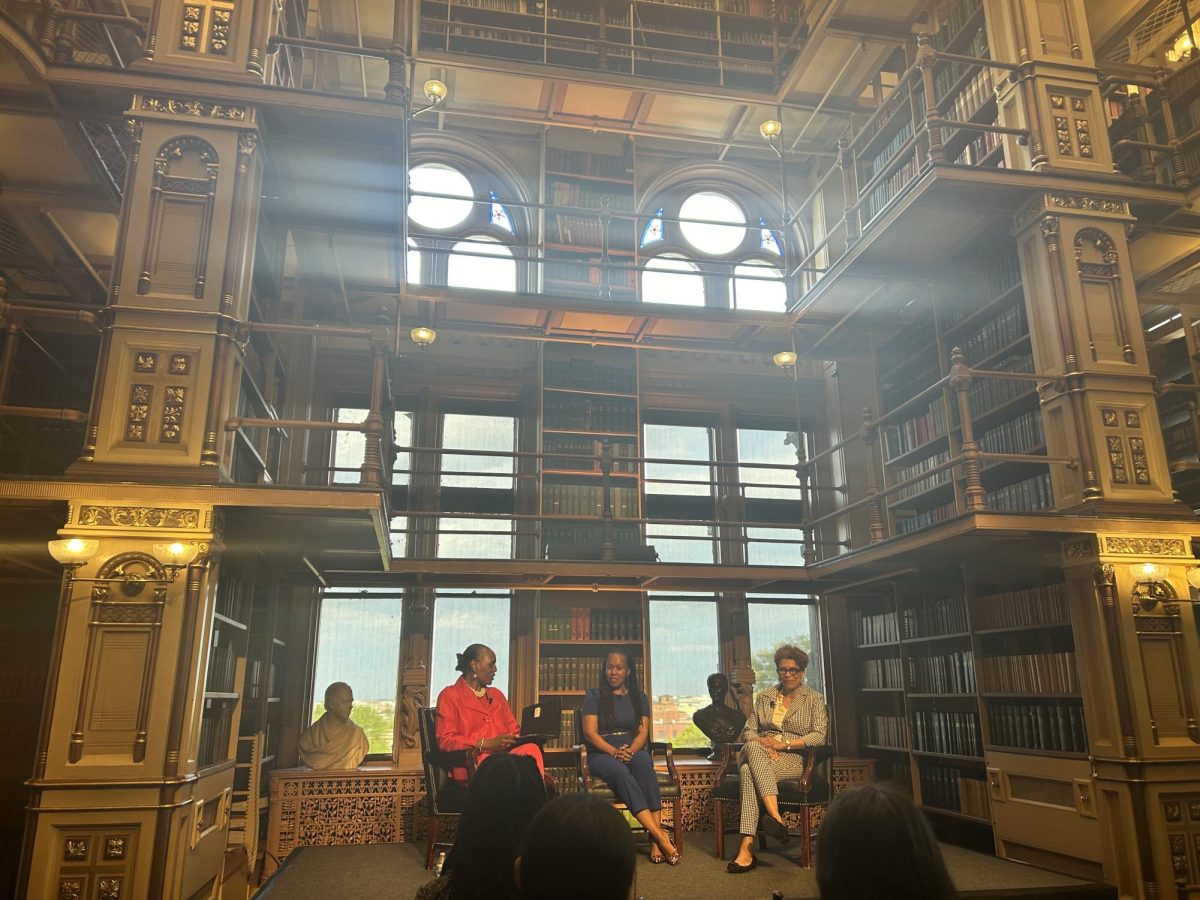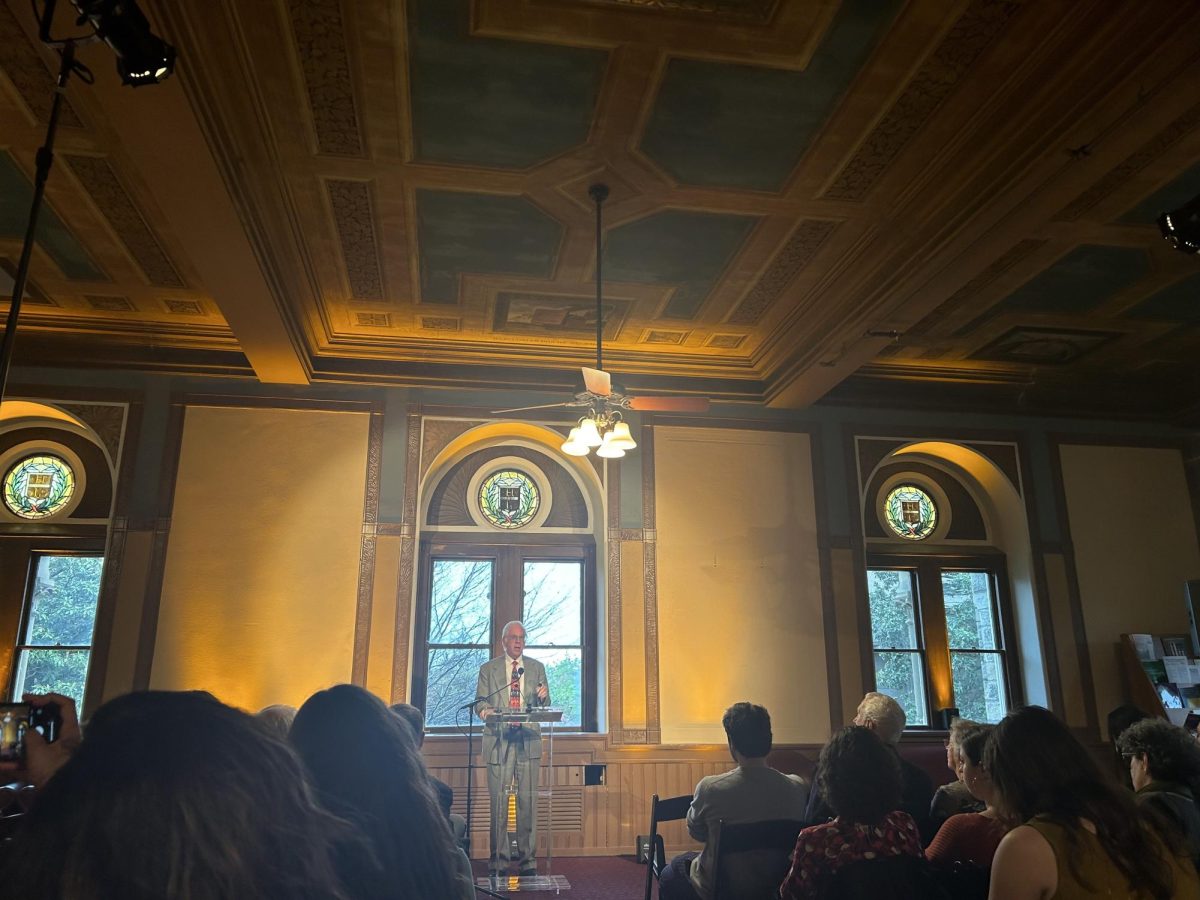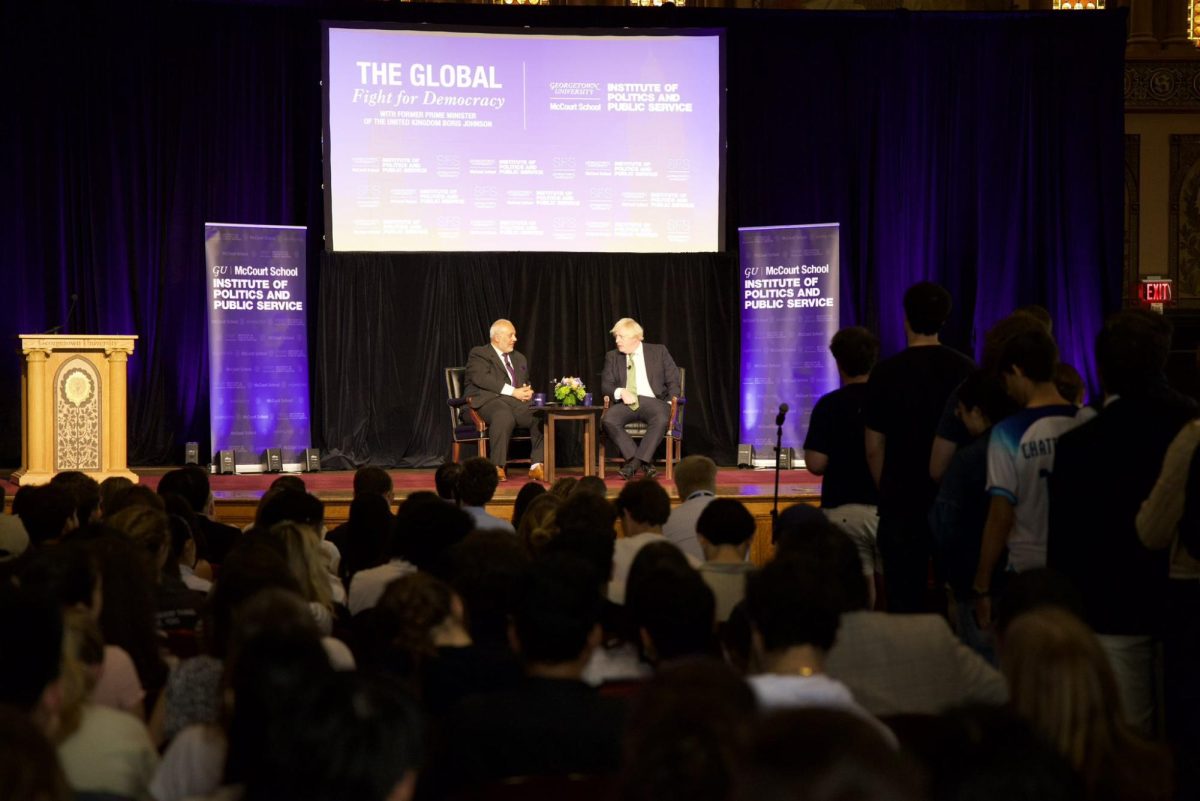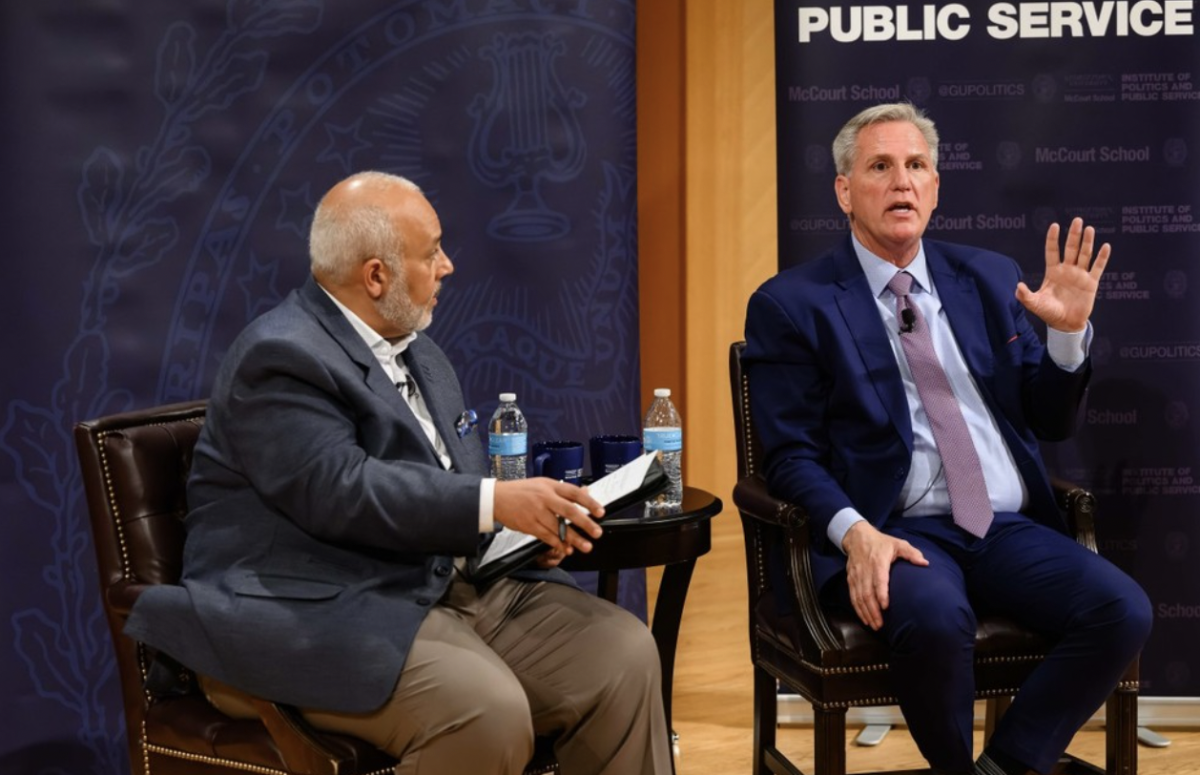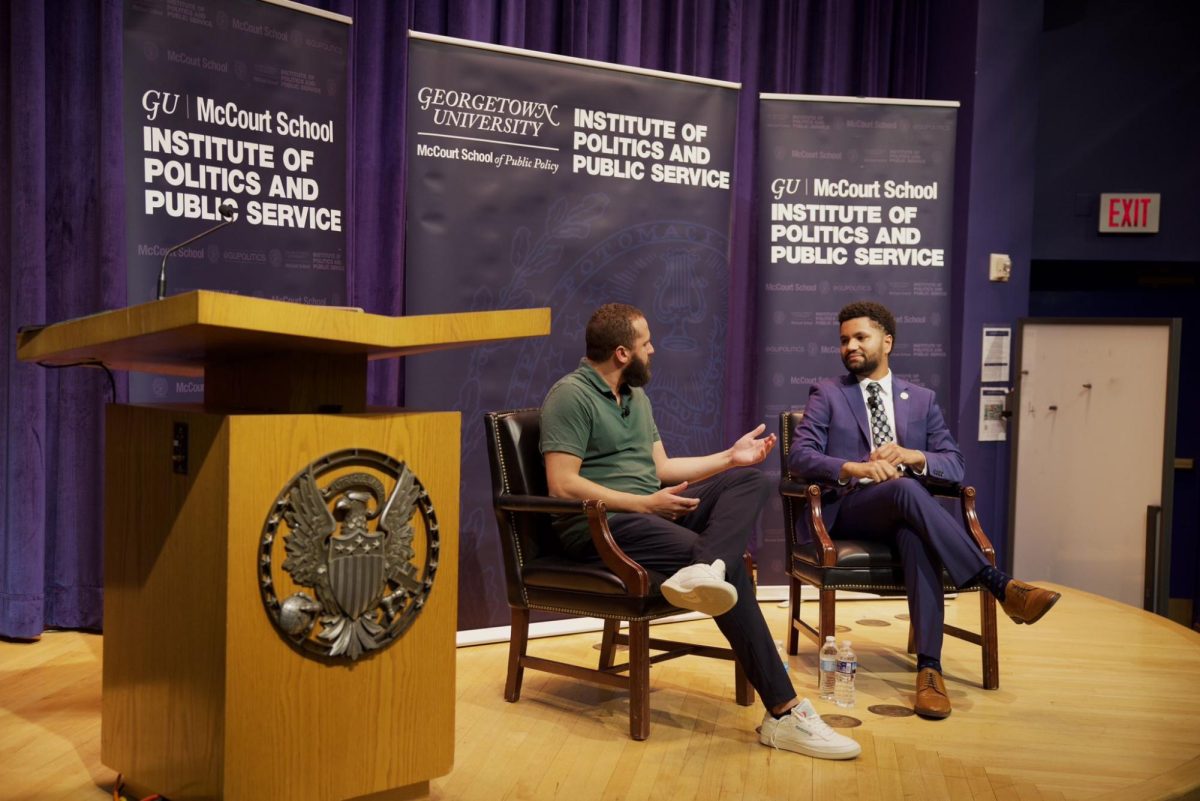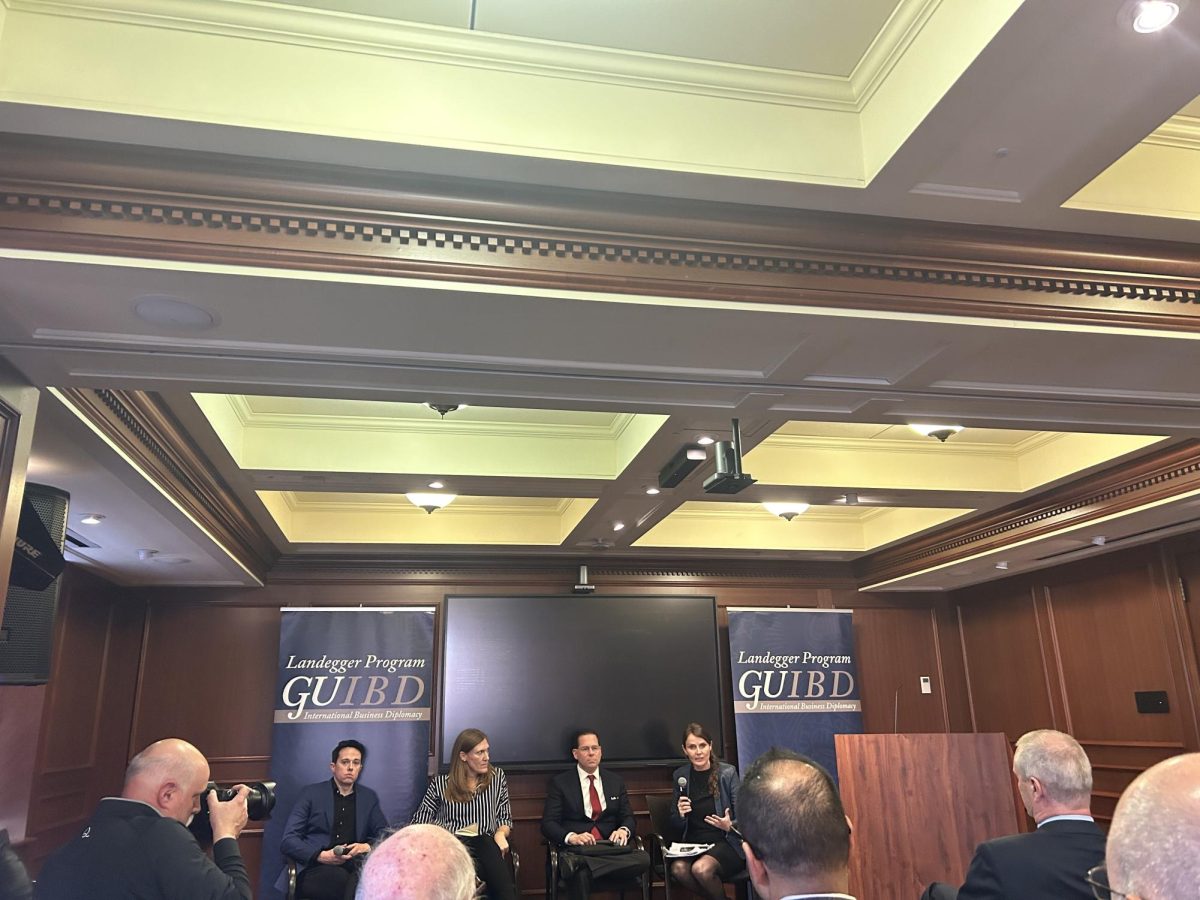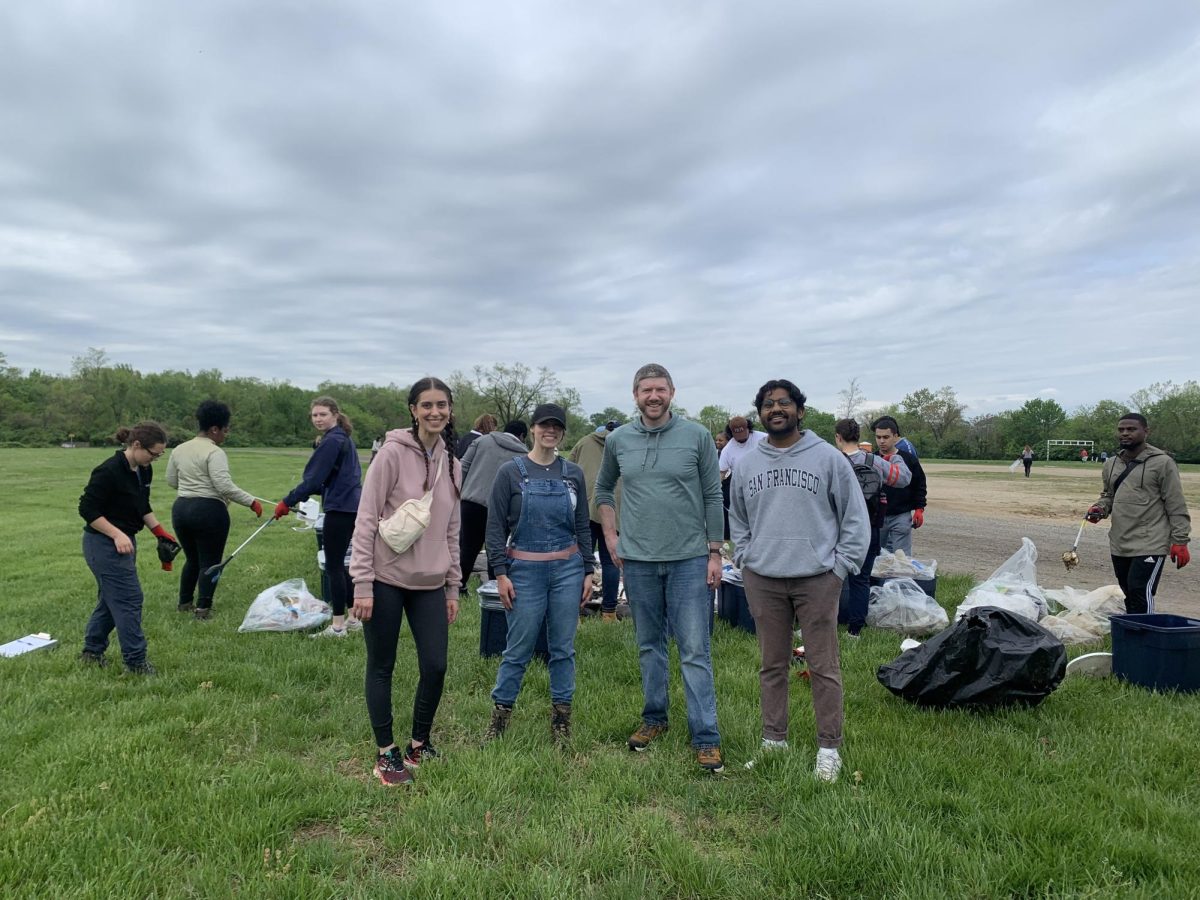A panel of Latin American journalists discussed the risks of reporting in Venezuela and El Salvador at a Georgetown University event Feb. 13.
The Latin American Student Association, a student group that organizes academic and cultural events, and the Latin America and the Caribbean Policy Association, which aims to promote discussion and analysis of policy and political issues in Latin America, co-hosted the the discussion, which featured journalists Jason Calderón, Luz Mely Reyes and José Luis Sanz. Graduate student Angélica Franganillo Díaz (GRD ’24), moderated the panel, which was translated from Spanish to English and focused on the journalists’ experiences of reporting in countries with authoritarian governments.
Venezuela plans to hold presidential elections in the second half of 2024, though a specific date has not yet officially been set. Current president Nicolás Maduro, who is commonly characterized as an autocratic leader, has held office since 2013 and remains the leading candidate for the upcoming election. Many Venezuelan citizens have backed opposition candidate María Corina Machado, but the country’s highest court upheld a ban on her candidacy last month.
Reyes, a Venezuelan journalist with over two decades of experience and co-founder of the independent journalism platform Efecto Cocuyo, said journalism is a fundamental pillar of democracy, especially in authoritarian countries, where citizens may have limited access to information.
“The attacks on the media and journalists became a tactic to close more and more spaces, spaces for information, not only to deny information to the people but also to dismantle the entire media industry,” Reyes said at the event. “We can separate the issue of journalism as it’s linked to freedom of expression and access to information, but also understand that in an authoritarian system, the dismantling of the media industry becomes an objective in itself to expel journalists in their daily work.”
In El Salvador, meanwhile, President Nayib Bukele won a second term Feb. 5. Bukele, a conservative known for his authoritarian governing style, has been popular among citizens because of his strong stance on crime — his strict policies have caused a steep drop in crime rates but an increase in incarceration. Notably, an increasing number of journalists have faced threats and intimidation under Bukele’s leadership.
Calderón, the chief U.S. correspondent for international news channel NTN24 and anchor of primetime newscast “El Informativo,” said in countries that have populist authoritarian leaders, such as El Salvador, journalists and outsiders often possess vastly different views from the experiences of citizens.
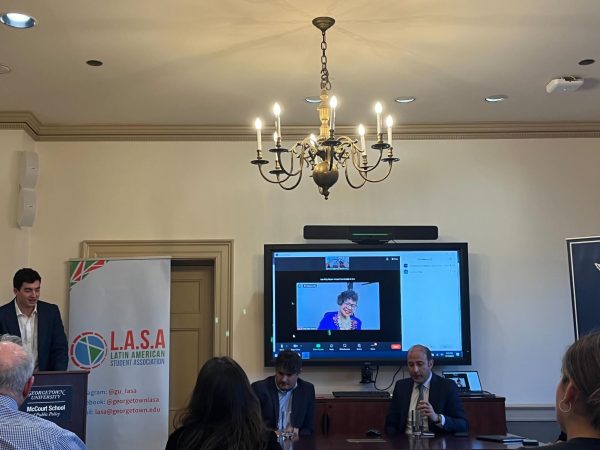
Caldéron said that despite alleged human rights violations, many people have benefited from Bukele’s presidency, which can explain his popularity.
“Of course, from a human rights perspective, there is an imbalance, but that perception and the experience of the citizens are different,” Calderón said at the event. “It is clear that violence is not democratic, that the value of rights, of security, is not the same for everyone. It changes depending on where you grew up, how you grew up, and if you have children.”
Sanz, the Washington correspondent for El Faro, a Central American digital news platform founded in El Salvador, said journalism plays a key role in bringing people together and in grounding the world in reality, which is particularly paramount in the face of authoritarian governments’ heavy surveillance.
“This is something that is proving most difficult in current times, not only with the exercise of social power, but with new social dynamics, which is to articulate the conversation, to create common spaces for conversation,” Sanz said at the event. “These spaces allow for the idea that facts can be nuanced, with different approaches, but there are also concrete facts from which we articulate the idea that we live in the same reality.”
“It is a key issue in art, in journalism, but also in academia. Evidently, some political leaders have let that pass, have betrayed that principle of the creation of a common space,” he added.
All three journalists agreed that journalism is an essential component of society, which frequently causes politicians — particularly those in authoritarian states — to target the industry. Reyes said that journalism is defined by its ability to provide the public with the whole picture, rather than the single view that authoritarian governments often provide.
“Journalists, in this authoritarian system that doesn’t face their consequences, we must continue to seek information and continue to help build ‘the truth.’ But the truth is not built by a single unit, rather by many gazes that allow us to understand where we stand,” Reyes said.
Calderón said that students of the next generation will be particularly important in protecting freedom of speech and the right to information.
“Students are the future, not only of this country, but also of our region,” Calderón said. “For some students to be concerned about the conversation of democracy, of freedom of expression, is for me simply laudable at a time when we need to have people who think and who have reason when so many ideas and so much fake news and so much information is circulating.”








